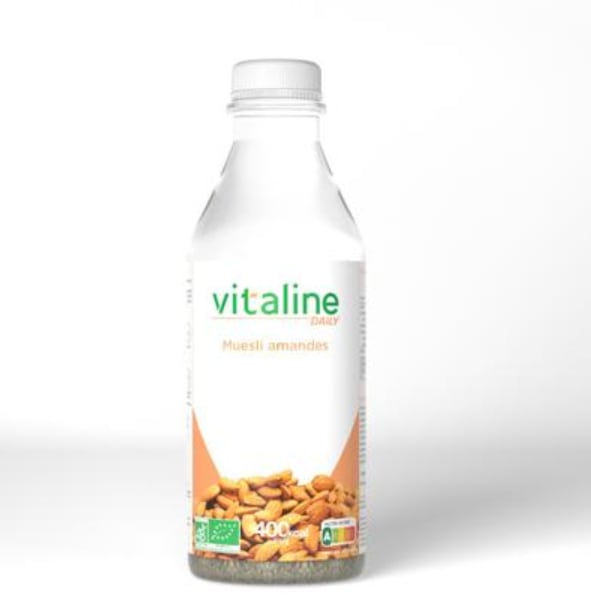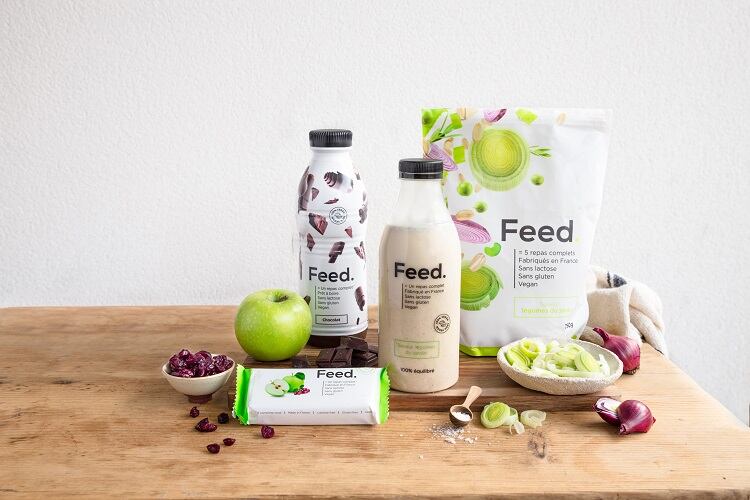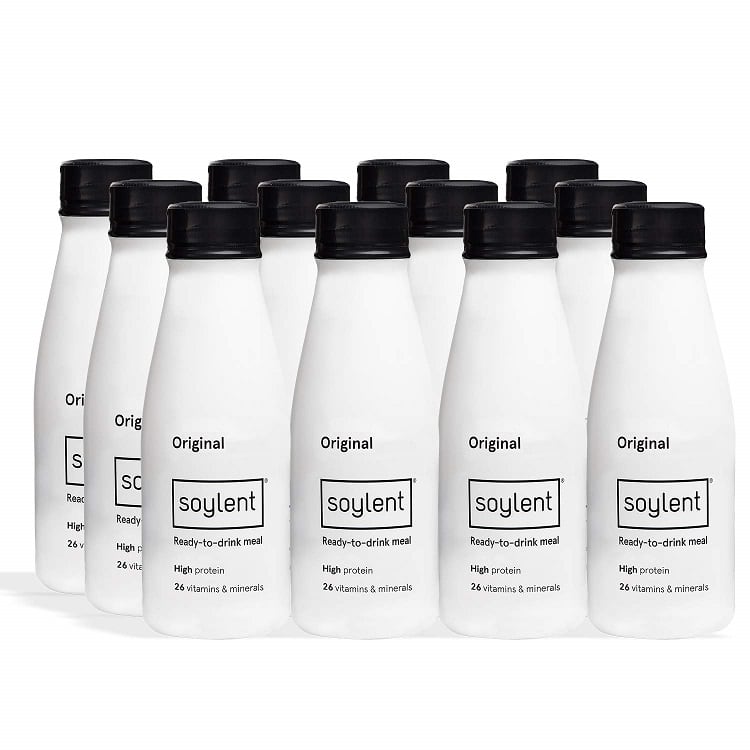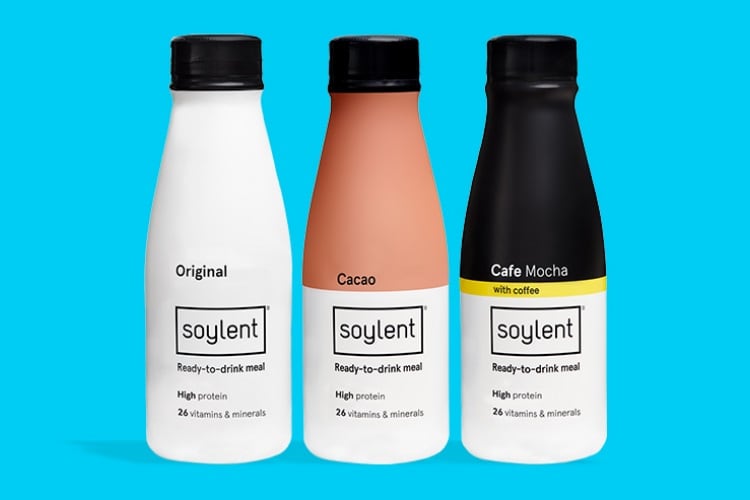‘Smart food’ is a growing area of the food sector. The concept aims to provide consumers with the nutrients of an entire meal, which companies such as US-based Soylent and UK-headquartered Huel do so in a variety of ready-to-go formats.
Since Soylent’s conception in 2013, competition has been building from start-ups on both sides of the pond, each making claims regarding convenience, sustainability, and of course, nutrition.
According to nutrition scientist PK Newby, smart food represents a natural evolution of nutrification.
“First, we were just adding a single nutrient [to food] because we could prevent deficiencies. Now, we’re basically preparing whole meals that give us our nutrient needs,” she explained at the Seeds and Chips conference in Milan last week.
“If you don’t want to change your behaviour at all, we have perfectly nutrified – to our knowledge – products that allow us to have our meal without preparing it or cooking it.”
Vitaline: ‘There is a distance between what science says and what consumers buy’
This is also one of the main claims of French smart food start-up Vitaline, which manufacturers scientifically formulated, ready-to-eat products for the health-conscious consumer.
“There is such a distance between what science says and what consumers buy. We launched Vitaline with the initial insight that to [get the best out] of ourselves, we have no choice but to eat well,” said Vitaline chief marketing officer and co-founder Sébastien Worms.
Together with Alexis Fournier, Worms founded Vitaline to offer consumers ‘the best of nutrition in simple formats’.

According to Worms, the biggest hurdle facing those interested in healthy eating is ease of consumption: “Pretty much everyone knows what to eat and cook when we [have time] and are at home.”
Further, consumers want to retain their habits, but change what they consume, he continued.
Vitaline’s organic offerings therefore include powders, ready-to-drink products and pouches that contain up to 400 kcal per person – the equivalent amount of calories consumed in a traditional meal.
Nutritionally speaking, Vitaline’s products are dense. The company’s almond muesli offering, for example, contains the equivalent of three almonds, two teaspoons of linseeds, eight tablespoons of oats, and one teaspoon of oils. One serving contains more than 30 natural ingredients, 19 g of protein, and is rich antioxidants and omega-3.
Vitaline’s most important differentiator, according to Worms, is that it has integrated a development lab into its building to shorten the development cycle and promptly bring innovation to market. This will become increasingly important as “going forward we need to bridge the gap between desirable food, health benefits, and environmental impacts,” he said.
Feed.: ‘We are not here to replace food. We are here to offer a healthy alternative’
Convenience is also a key drawcard for Feed.’s consumers, according to export manager Sebastien Herriau.

Another French start-up, Feed. was created in 2017 by former lawyer Anthony Bourbon who noticed a lack of healthy, ready-to-go offerings while working in a fast-paced corporate environment.
Today, Feed. offers nutritious vegan, gluten-free, lactose-free and GMO-free food in bars, powders and RTD formats. “Feed. is a complete meal that gives you all the nutritional intake your body needs,” Herriau told FoodNavigator at Seeds and Chips, where the company took out the Fastest Growing Startup award.
Feed.’s coffee flavoured powder is sold in a bottle, to which water or milk can be added to make a shake. The company claims the drink will satisfy consumers’ appetites for up to half a day. One bottle contains 651 kcal (milk or milk alternative not included), and lists gluten-free oatmeal, pea protein, yellow flax, rice flour, and soluble coffee among its ingredients. A 150 g bottle of dry powder retails for €4.90.
The company is not just targeting the corporate scene. Marketing itself as a lifestyle brand, Feed. is also aimed at students on a budget, vegans, and video ‘gamers’, who don’t make the time to prepare healthy food during group gaming sessions.
“We are not here to replace food. We are here to offer a healthy alternative in a punctual way. We are not telling our consumers to consume Feed. every day, but when they are in a rush, when they don’t have the opportunity to have a proper lunch, or when they don’t want to – or don’t know how to – cook,” we were told.
“Soylent and Huel and Feed. will be the next three rising smart food companies. Instead of Pepsi and Coca-Cola, we have Soylent, Huel and Food.” – Feed. export manager Sebastien Herriau
Feed. has its eyes set on the international market. Having already entered a number of European countries, including Belgium, Switzerland, Luxembourg, and of course its homeland France, the start-up is preparing to enter the UK market in June. US expansion is on the cards for 2020.
“We want to multiply the point of contact with consumers to make sure that everyone can find Feed. in drugstores, in catering, in retail, in universities,” said Herriau.
“We believe the UK is one of the biggest markets in Europe for smart, functional food. This is where we have the most chance of scaling up fast.”
Soylent: Using plants and cellular to give ‘everything your body needs to thrive’
While California-based Soylent also offers a range of nutritious and convenient powders, RTDs, and bars, at Seeds and Chips, CEO Bryan Crowley tapped into the firm’s sustainability message.

“We’ve got to increase food production. We have a growing obesity epidemic. And yet the consumption of animal protein continues to grow,” Crowley told delegates.
For Soylent, a company which proudly makes its products with a number of genetically modified crops, responding to growing environmental and health concerns means introducing more plant-protein into our diets from cellular sources.
“It’s about finding products that sustain you, that are super efficient. [It’s about] giving everything your body needs to thrive, and using plant and cellular to do that,” said Crowley.
Soylent kicked off the smart food movement when its founder Rob Rhinehart developed a meal replacement powder that he lived off, and blogged about, for 30 days. Following a successful crowdfunding campaign, Rhinehart launched Soylent in 2014.
“[In the future], we want a vending machine where you can put in your diet and a Soylent drink will spit out, customised for you” – Soylent CEO Bryan Crowley
The company has since moved from a meal replacement powder to a ‘complete nutrition platform’ and raised $72m from a number of investors, including Google Ventures. In 2018, Soylent entered the UK market.
Soylent’s original ready-to-drink meal contains 20 g of plant-based protein, omega-3s and 26 added vitamins and minerals. A 12-pack of 414 ml bottles retails on Amazon for £39, equating to £3.25 a bottle.
“We think it’s time to change the conversation, invest in more cellular, and really try to figure out how we can actually create a more sustainable food source for the future,” Crowley told delegates.
“We are hoping that one day we will have a Soylent product [made with majority] cellular sources.”



